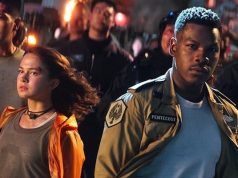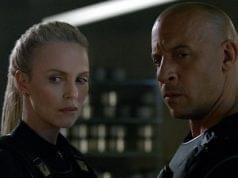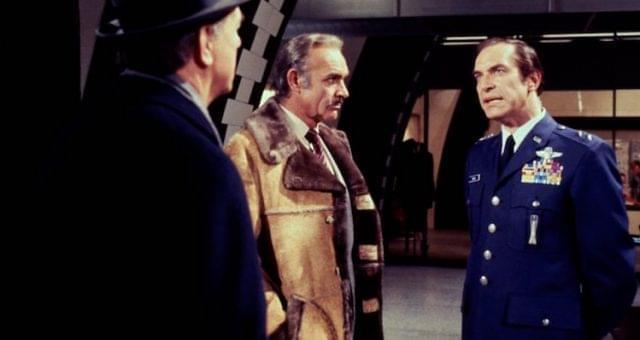
In the very likely event that you have not seen the 1979 disaster film “Meteor” and do not wish to have the entire plot spoiled for you, please avert your eyes from the following paragraph!
A five-mile-wide chunk of asteroid is on a collision course with Earth, and the only way to stop it is for NASA to fire some nuclear missiles at it to send it off course. So they do. The end.
Now, if you or I were making this film, we’d probably introduce some complications. Maybe they’d have another plan first, and it fails, and that’s when they come up with the nuclear option. Or maybe the nuclear missiles don’t work, so NASA has to launch an astronaut up there to blow up the asteroid manually by firing a gun at it. Yeah, sure, that would be stupid, but come on, we’re just brainstorming here. And if we couldn’t come up with any good complications to flesh out the story, we’d realize there was no way it would work as a 107-minute movie. We would abandon the project and move on to other things.
But not the people who made “Meteor”! They are undeterred by such trivial matters as the story being boring. They also do not care if they cannot afford good special effects. They do not care about a lot of things. The man who directed “Meteor” is Ronald Neame, and he made “The Poseidon Adventure,” for crying out loud! He is not interested in your petty complaints! HE WILL MAKE WHATEVER DISASTER MOVIE HE WANTS! (Well, not anymore. He’s 98 years old. Now the only disasters he makes are in his pants.)
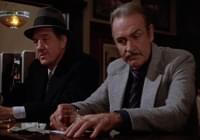
The star of “Meteor” is Sean Connery, who is known to modern viewers as an ancient and leathery Scotsman but who was a young lad of 49 when this film was made. He plays Dr. Paul Bradley, a NASA scientist who left the company five years ago but is dragged back into action when the huge asteroid chunk is discovered hurtling Earthward. It seems Paul designed a satellite called Hercules that has 14 nuclear missiles on it. The original plan was to aim the missiles out toward space as a defense against, I don’t know, Martians, or errant asteroid chunks, or whatever, but instead the military aimed the missiles at the Soviet Union, which you have to admit was a much more imminent threat. Paul left NASA in a huff over this misuse of his peaceful nuclear-missile-deploying technology and now spends his days sailing his yacht and drinking Scotch.
As far as I can tell, Paul possesses no special knowledge of the Hercules system that isn’t known to the NASA scientists who continue to operate it. All they have to do is reposition the missiles so they’re aimed at the asteroid instead of Moscow, and if they don’t know how to do THAT, what DO they know? So I don’t know why Paul has to be dragged in. Maybe they forgot the admin password? Maybe they just missed having Paul around? His old NASA buddy Harry Sherwood (Karl Malden) is certainly glad to see him again, and Paul, being rather full of himself, seems to enjoy feeling important, even when, as in this case, he isn’t.
One snag, though: The 14 nuclear missiles won’t be enough to thwart the meteor. It’s too big! (It’s also too big to be properly termed a “meteor,” despite the film’s title, but never mind.) Luckily, the Americans are pretty sure the Soviets have a counterpart to Hercules that’s just as secret as Hercules is. If the Yankees and the Russkies were to combine their powers, they could save the world. But will Cold War politics get in the way?
That would certainly be interesting! I would enjoy that plot complication, where the fate of mankind is threatened by petty bickering and nationalistic grudges. It would give us a lot to think about, wouldn’t it? About how we let our political differences blind us to our shared humanity?

Obviously, the movie doesn’t go that route. The movie hints at going that route, but then it goes a different route, the route where the political posturing is resolved in two minutes and Sean Connery gets to hit on the attractive Russian translator. Her name is Tatiana (Natalie Wood), and she translates for Russia’s top astrophysicist, Dr. Dubov (Brian Keith). Dubov speaks very limited English and requires a translator for most interactions. This helps the film earn points for realism while also helping the film further its goal of being boring. Because if bland scientific dialogue isn’t dull enough by itself, imagine how dull it is when you have to hear it, then hear it spoken in Russian, then hear the Russian guy respond to it, then hear his response translated into English. If boredom is what you’re going for, this is one of the most efficient means of obtaining it. Kudos, “Meteor.” Kudos.
Anyway, the Russians do have a Hercules equivalent, called Peter the Great, and it’s pretty much exactly the same as Hercules, right down to its aesthetic design. Whichever black-market weapons developer sold the plans to the Americans and the Russians had some serious nerve double-dipping like that.
NASA’s top-secret control center for Hercules is in New York City, underneath the AT&T building. (Where else would it be? In Houston, where the rest of NASA is? Don’t be stupid.) There are dozens of full-time personnel involved in monitoring Hercules. Don’t ask me what they do all day. “Is Hercules still in orbit?” “Yep.” “Are its missiles still aimed at Russia?” “Yep.” “Has anyone ordered us to fire the missiles?” “Nope.” “Well, I guess we can knock off early today, then.”
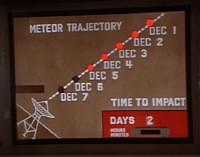
One of the employees, perhaps out of boredom, has taken the initiative of putting together a panel that tells us how many days are left before the asteroid reaches Earth. That kind of outside-the-box thinking is exactly why America leads the Soviet Union in the space race. You know darn well no lazy socialist at Peter the Great headquarters ever demonstrated that sort of gumption! The movie doesn’t show us what’s going on over there, but you can assume they’re just sittin’ around waitin’ for the United States to solve their problems for them.
The military commander at Hercules headquarters is Major-General Adlon (Martin Landau), and he is VERY SKEPTICAL of telling the Soviets that Hercules even exists, let alone inviting their top astrophysicist and his boredom-enhancing translator into the command center. Adlon’s theory is that the asteroid will burn up when it enters the Earth’s atmosphere, and that all this panicking and secret-revealing and Russia-cooperating-with is therefore unnecessary. In general, Adlon is opposed to everything, especially science, whose representatives have calmly explained that a five-mile-wide chunk of rock is too big to just “burn up” when it enters the atmosphere. (It is also too big to be called a “meteor,” but I believe we have covered that.)

At first it looks like Adlon might be right, which would be a profound victory for ignoramuses everywhere. Small pieces of the asteroid arrive ahead of schedule and produce nothing more than a display of colorful lights in the skies over Italy. But then some bigger chunks hit the Swiss alps, causing an avalanche, and then some more hit the ocean, causing a tidal wave that floods all of Hong Kong. Adlon, to his credit, is not the kind of guy to cling to an opinion after it’s been proven wrong. It only takes a couple hundred thousand deaths and the destruction of an entire city to get a retraction out of him. Realizing his error, he humbly apologizes to Harry Sherwood and Paul Bradley. Harry graciously accepts and shakes his hand. Paul, being a jerk — the movie thinks being a jerk is the same thing as being a hero — ignores him.
New York City gets hit by an early chunk of asteroid, too, and Hercules’ subterranean headquarters are damaged. Some minor characters that we were supposed to care about but whose names we never learned get killed. Houston is fine, though. I’m just sayin’. And the missiles are launched, as planned, and they hit the big asteroid, and everything is fine, if “fine” includes having to watch shot after shot after shot of timers counting down and missiles being repositioned and pictures of asteroids having pictures of missiles unconvincingly superimposed over them. I don’t know if you call a 15-minute plot being stretched for 107 minutes “fine,” but I sure don’t.
(Note: This movie is better than “Armageddon.”)
–Film.com



